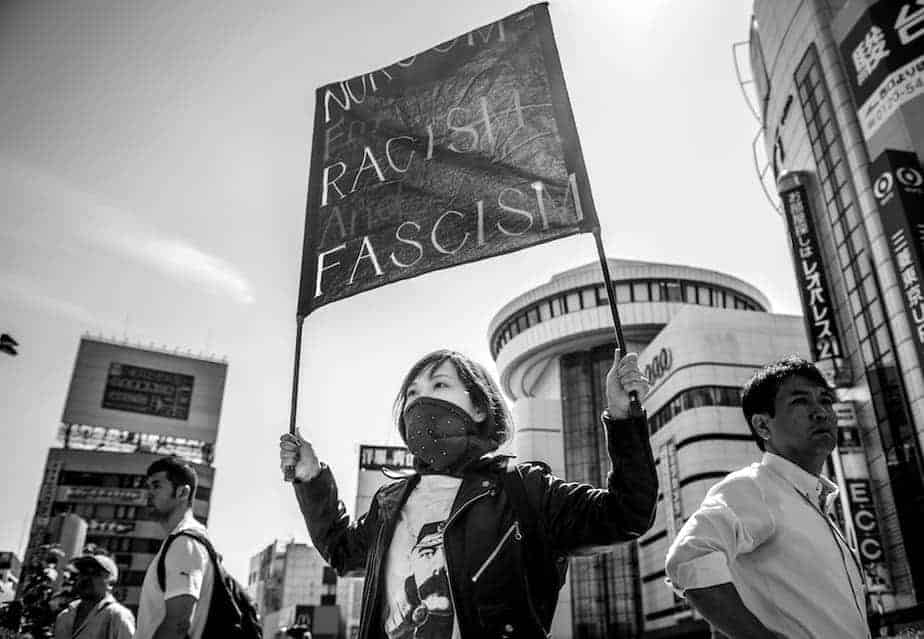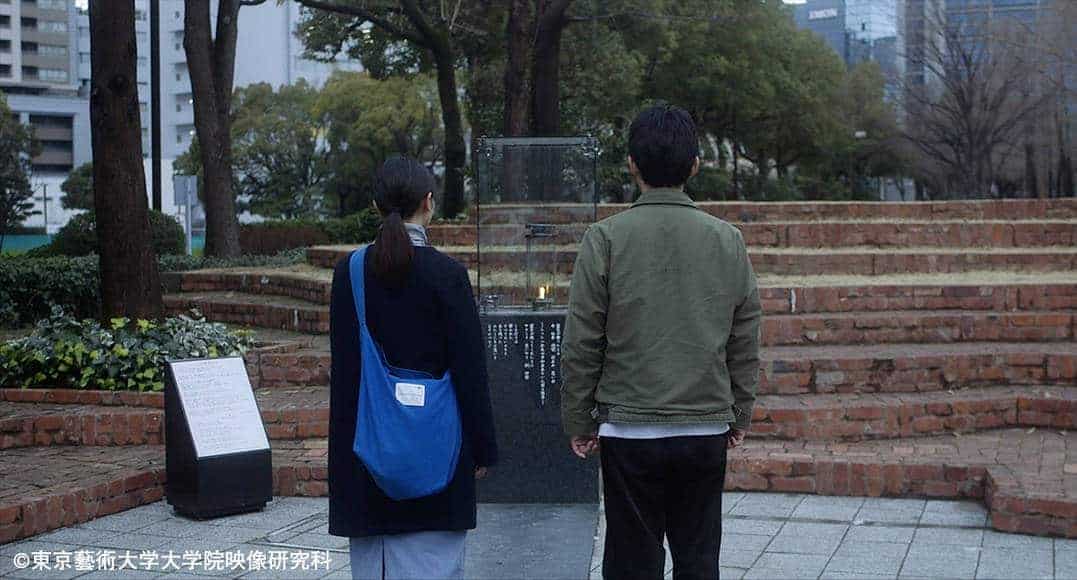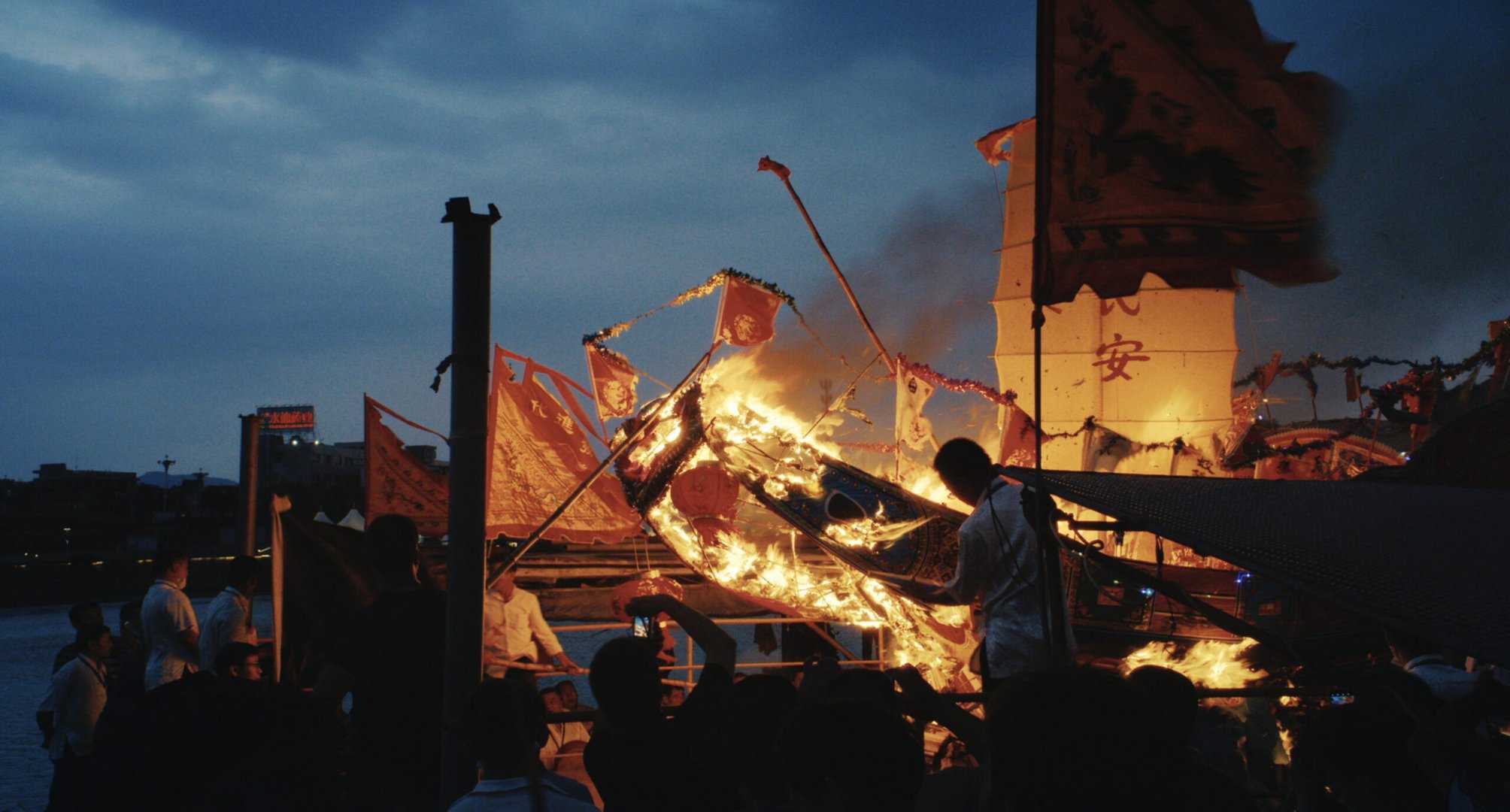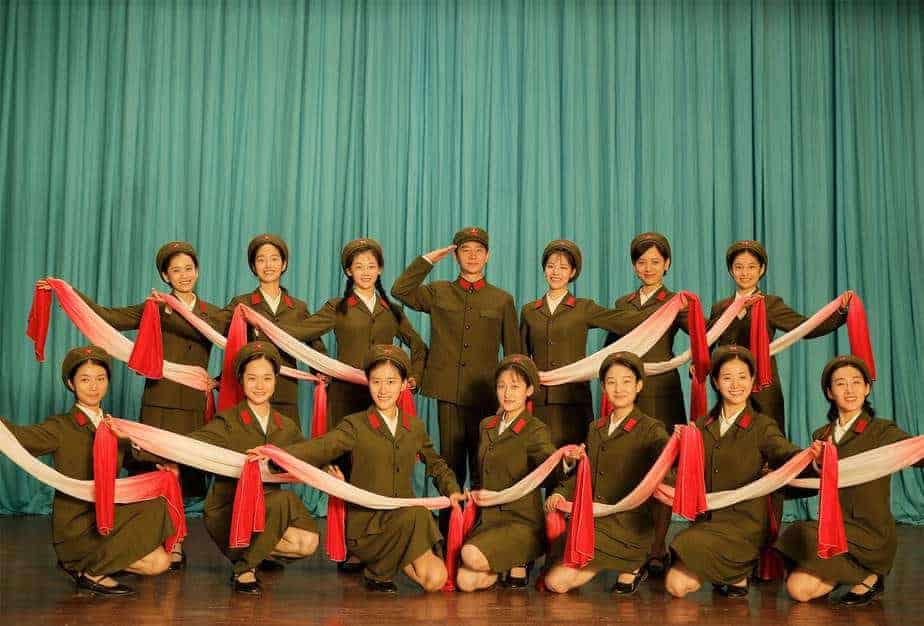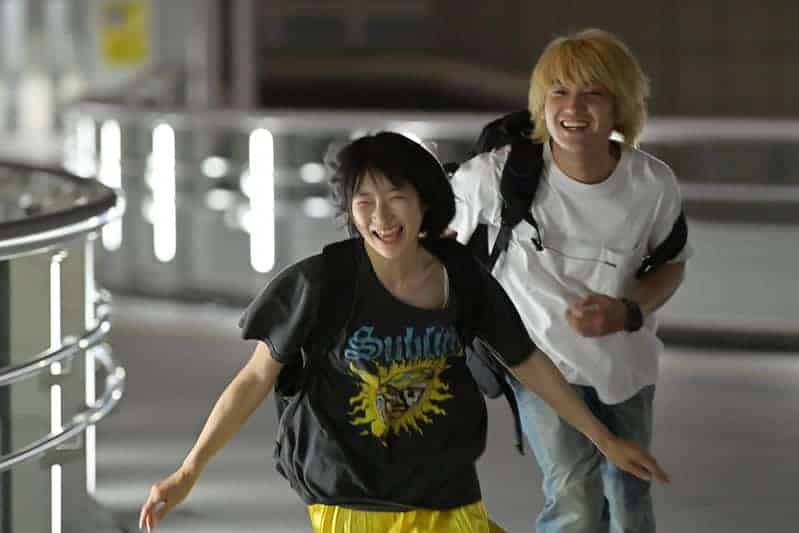Dressed in Imperial Army uniforms and flying Rising Sun flags, the anti-Zainichi Korean group dubbed Zaitokukai invade the streets of Koreatown in Tokyo. With virulence in their eyes and bile in their mouths, they vehemently declare all Koreans to either go back to the peninsula or to die – one female middle-school student cries out for a Koreatown Massacre, an older male point fingers out a Korean women as chong-ko – against a sonic backdrop of a patriotic tune sung by a children's choir. In ever-increasing numbers, however, these marches are silenced by the voices denouncing their obscene racist agendas, at times leading to violent clashes and arrests. Against this backdrop, Lee Il-ha's hip and insightful documentary erupts and educates the world in the battle against hate-speech, as told by those fighting on both sides of the conflict in the cities of Japan. ‘Counters' comes at an important time when hate across the world is spiralling out of control.
Counters is screening at the 17th New York Asian Film Festival
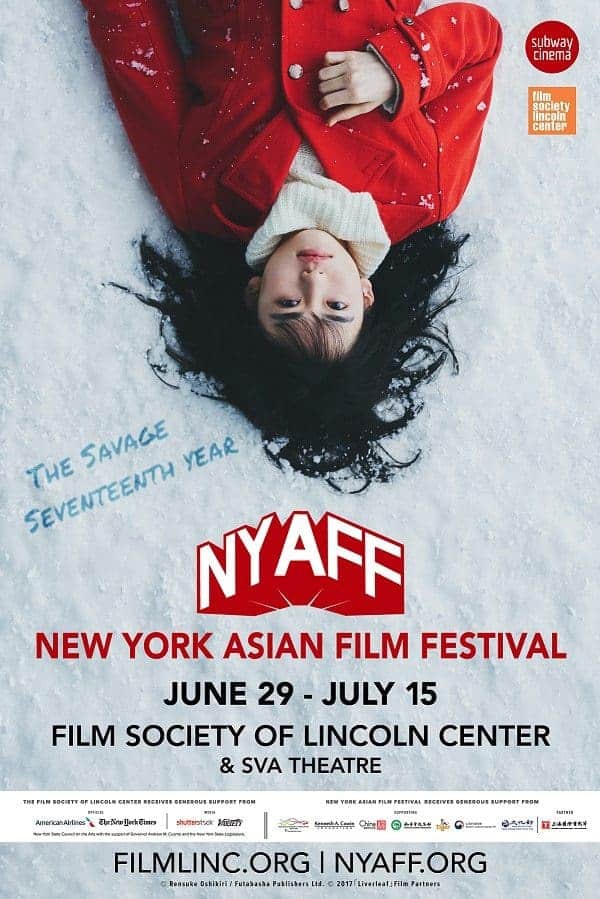
Centred around key events leading up to the passing of the Hate Speech Act of 2016, ‘Counters' follows ex-yakuza Takahashi and Otokogumi – an off-shoot of the wider Counters group – as they disrupt the activities of Makoto Sakurai's extremist movement. Told through interviews, extensive protest footage, and actual footage of Otokogumi's activities, Lee's film plunges the audience into this world. Overflowing with concise material the film explores the evolution of the group's tactics, personal experiences of racism, a brief lesson in the history of Korean immigration law, and delves into the vastness of direct and indirect activity members engage with in their battle against hate-speech. Most shocking of all are the glimpses into political scandals and the atrocious ineptitude of police officers managing the marches.
Heralding with a nonchalant tone, amplifying how commonplace this had become, Lee's film raises awareness of what has bled into the streets from the pumping heart of extremists – speech intended to spark a powder-keg of violence, calling for the outright murder of those who are not Japanese by blood. Perpetuated by Zaitokukai, this is feared to have swelled into the tens of thousands of followers as of 2017, and Lee unabashedly exhibits this at its most malicious. From here, the film's portrayal of Sakurai strips him down to a laughable and wholly detestable character, shown to react with petty schoolyard tactics with no interest in engaging a dialogue with anyone whose beliefs differ from his. Underneath this portrayal, however, are the frightening comparisons which can be made to a certain leader of the Western World, presented as a cautionary reminder of history repeating itself. Following on from the controversial Peace & Security Preservation Bill and the ongoing Moritomo Gakuen scandal, it becomes astoundingly clear how such views of Abe and Sakurai are becoming pushed aside.

On the flip-side, ‘Counters' core focus is in echoing the triumphs made by the Otokogumi (translated as Men's Folk), paving their way from a single tweet in 2013, through to the event dubbed as The Day – the first occasion Counter groups outnumbered their adversaries – up to its “victory” in the National Diet in 2016. From its violent beginnings, the audience is treated to a how-to manual in leading grassroots organisations against racist ideologies. Whilst Lee outright and correctly criticises Makoto's methods, he allows plenty of breathing space to demonstrate how to successfully encourage and persuade others. As a Korean national himself, Lee has felt the impact of this hate and knows change is needed and finds it in Takahashi's intelligent battalion, effectively becoming an honorary participant in showing both Japan and the rest of the world how to summon a paradigmatic shift in momentum.
However, this does come with its own limitations. Hailing the passing of the Hate Speech Act of 2016 as a small victory, ‘Counters' abruptly negates the lack of impact this bill has. Lee demonstrates its effect in destabilising Zaitokukai's marches but fails to address how it is not a ban on hate speech and does not penalise its propagation. Not only is the language the bill is founded on vague, its reach does not extend to online spheres of communication and since the film was released, has seen backlash from other counter demonstrators such as Tokyo No Hate. Whilst this cannot be helped by Lee, it should be noted that the film's celebratory ending, whilst wholly deserved, should only be seen as a small step in the fight against the anti-Korean rhetoric.
Yet despite all the awareness the film raises and all its footage of good clashing against evil, it is the time given on Takahashi, Kimoto, Watanabe, Nochi, Arita and other core members the film will be long remembered for. These down-to-earth yet larger-than-life heroes greet the audience with delightful and humorous antics and the bespectacled Takahashi's loud pseudo-gangster personality makes him an unlikely star. Becoming exposed to these men on an informal and intimate level only serves to make them some of the more likeable non-characters to grace a documentary film. With their unforgettable presence at Lee's disposal, they guarantee to leave a lasting impression firmly imprinted on the collective memory, going so far to suggest they, along with the film's groovy and youthful editing, style, and design, are what makes ‘Counters' stand out.

This is definitely a youthful film, and whilst it deals with heavy subject matter, it does this through an almost DIY approach. Its visual documentation – through interviews, protest footage, actual photographs, and fun yet at times off-putting graphics – tied up with its musical montages makes it grounded in the streets. Whilst other directors might have tried too hard to appeal to a target demographic, Lee boasts confidence and respect for his audience and subjects, and his handling of these pressing issues is appropriate and stylish. The editing is crafty in its narrative construction but doesn't detract from the powerful impact it leaves – it only fuels it further.
Handling such heated issues such as hate-speech with a focus on the antics and organisation of almost-lovable people poses difficulties: what if one outweighs the other? What if it refrains itself in its exhibition? The balance of focus in ‘Counters' is so symbiotic, each element complements the other. Countering the unnerving display of vile hatred from group with the humility and conviviality of the other moves, the film forwards in all the right ways. It delivers a powerful and compelling argument for racial harmony and unity whilst not shying away from the other side of the coin. An enjoyable, insightful, and wholly memorable experience, ‘Counters' shows how just one tweet, one cry for action, even one person, can snowball into a movement with the capacity to shape history in an age where many feel they are powerless to do so. A reminder that, even when one side proves victorious, we must never forget about the loser.


